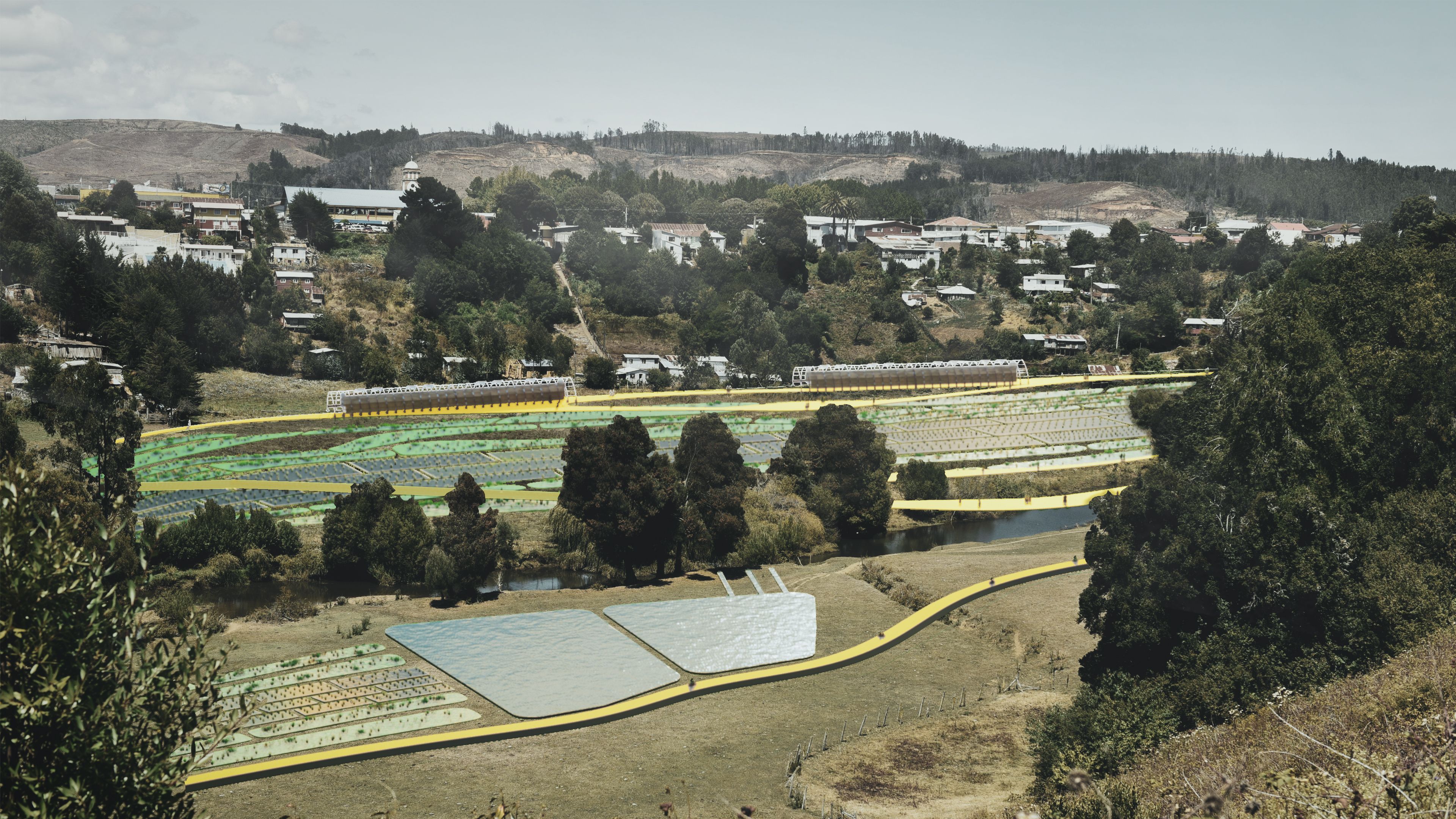
Riverside wetland depuration system
Graduate project workshop
Landscape and Sustainability Observatory, Diego Portales University. OPS UDP
The city of Carahue is located in southern Chile, in the Araucanía region. Currently it’s inhabited by 25.000 persons and it has the highest rural population percentage of the region. Due to it foundation beside the biggest river of Araucanía (Imperial river), the city enjoys a particularly wet environment and very rich agriculture fields attracting a lot of birds and aquatics mammals. Despite that, Carahue’s urban design doesn’t integrate the surrounding natural landscape and does not take advantage of the riverside either. Further that, the whole area it’s being contaminated by the invasive agriculture and forestry activities wich affect the Imperial river basin altering water quality and increasing ground erosion. The poor chilean forest monoculture and agroindustry public politics means for Carahue today the biggest threat.
Assuming that the currently chilean way of landscape management is not giving up on grow, the proposal’s main intention for Carahue is to redress water pollution produced by local agroindustry. Therefor the project develops an technical wetland depuration system that besides ensuring water quality improvements also create a whole new habitat for wildlife and human recreation. The cleaning system includes a new way to travel along the riverside and wetlands, proposing new connections between urban and rural life. The whole project aims to resignify the leadership of natural systems we inhabit and how we are related with them.
